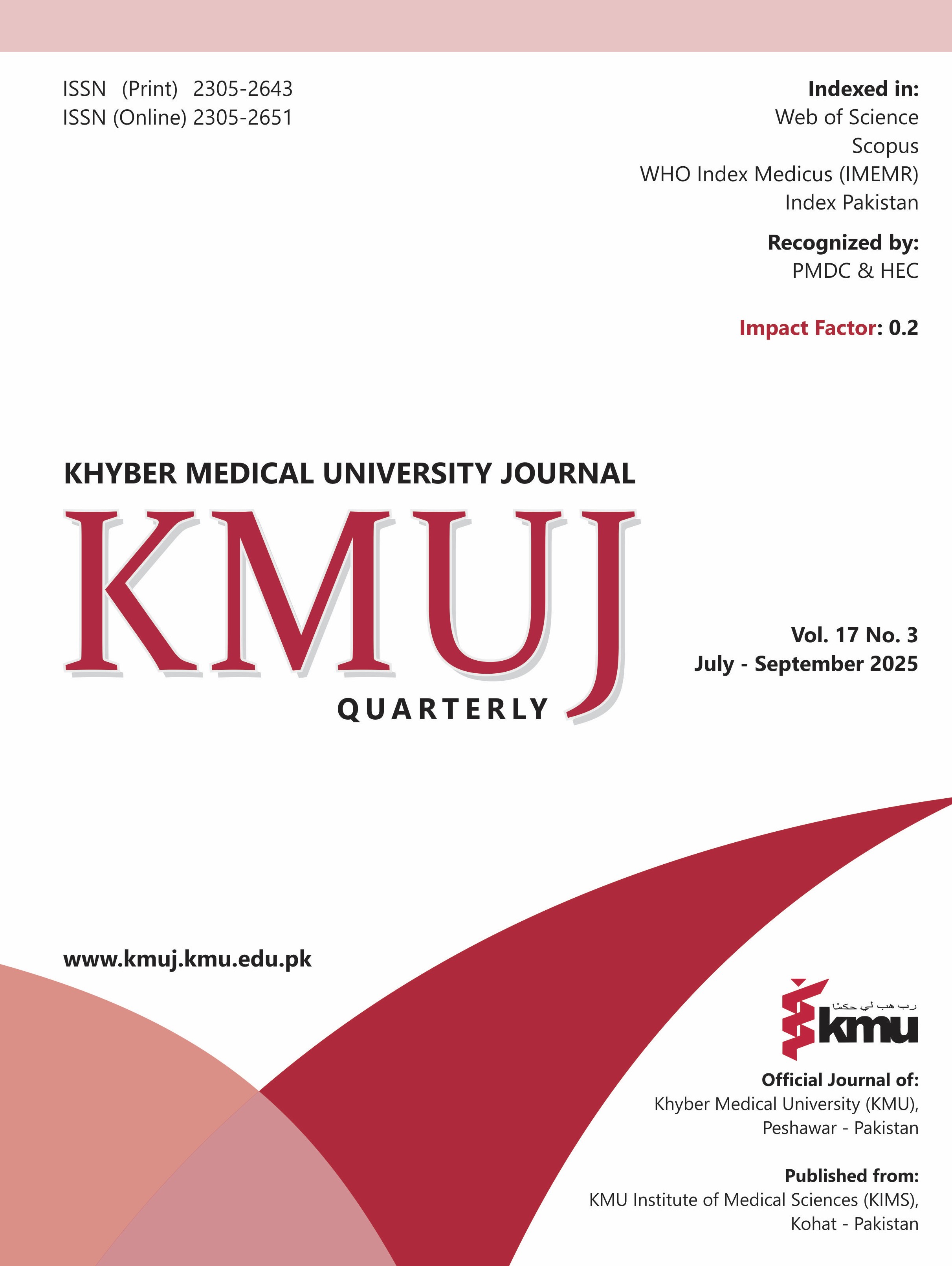Hygiene and health challenges of women during floods in northern Pakistan and Khyber Pakhtunkhwa: from menstruation to motherhood
Main Article Content
Abstract
Dear editor,
Floods disproportionately affect women's health because of damaged infrastructure, insufficient aid, and cultural norms that exacerbate vulnerabilities from the need for menstrual hygiene to the crucial phases of pregnancy, childbirth, and lactation. Since late June, more than 706 people have died due to floods across Pakistan (328 causalities in Khyber Pakhtunkhwa and 274), suffering devastating loss. According to UNICEF, by mid-august at least 333 people have died, including 21 children, while more than 1600 buildings were damaged leaving women without shelter and access to essential services. 1
Women in flood affected communities in Pakistan face a variety of menstrual hygiene issues, such as restricted access to sanitary products, subpar facilities, and cultural barriers, all of which have an impact on their health and general well-being.2 The necessity for better management of menstrual hygiene is highlighted by the fact that unsanitary behaviors during catastrophes cause health problems such as rashes, sexually transmitted diseases and urinary tract infections in women.2
Floods have a serious detrimental effect on the reproductive health of expectant mothers, leading to hazardous deliveries, malnutrition, interrupted prenatal care, and higher rates of maternal and newborn death.3 They also have a detrimental effect on breastfeeding practices since they reduce milk supply due to inadequate nourishment, stress, and lack of privacy, as well as the availability of alternatives to breast milk.4
Social and cultural barriers limit women's access to reproductive health treatments in flood affected Pakistan; stigma and reluctance keep women from reporting maternal or menstruation needs. These issues underscore the critical need for gender sensitive disaster response by contributing to increased maternal and neonatal mortality, a rise in reproductive tract infections, and long term detrimental maternal health.5 Disaster response needs to be gender sensitive in order to protect the lives, health, and dignity of women affected by floods. This includes integrating reproductive health into relief policies, deploying female healthcare workers, distributing emergency kits with menstrual and maternal supplies, and raising awareness to break cultural taboos.
Article Details

This work is licensed under a Creative Commons Attribution 4.0 International License.
Work published in KMUJ is licensed under a
Creative Commons Attribution 4.0 License
Authors are permitted and encouraged to post their work online (e.g., in institutional repositories or on their website) prior to and during the submission process, as it can lead to productive exchanges, as well as earlier and greater citation of published work.
(e.g., in institutional repositories or on their website) prior to and during the submission process, as it can lead to productive exchanges, as well as earlier and greater citation of published work.
References
1. Ironside P. UNICEF statement on flash floods in Khyber Pakhtunkhwa, Pakistan [Internet]. Media update: United Nations Pakistan; 2025 Aug 19 [Accessed on: August 23, 2025]. Available from URL: https://pakistan.un.org/en/300047-media-update-united-nations-pakistan-18-august-2025
2. Tufail Z, Ahmer W, Gulzar S, Hasanain M, Shah HH. Menstrual hygiene management in flood-affected Pakistan: Addressing challenges and ensuring women's health and dignity. Front Glob Womens Health 2023;4:1238526. https://doi.org/10.3389/fgwh.2023.1238526
3. Ochani S, Aaqil SI, Nazir A, Athar FB, Ullah K. Effect of recent floods on women’s reproductive health in Pakistan: an alarming situation. Int J Surg Glob Health 2023;6(1):e98. https://doi.org/10.1097/GH9.0000000000000098
4. Rizwan W, Sadiq M, Bukhari MH, Tasneem M. Impact of flood on breastfeeding practices at flood relief camps of Pakistan. Pak J Med Sci 2024;40(8):1724-8. https://doi.org/10.12669/pjms.40.8.8488
5. Ashraf M, Shahzad S, Sequeria P, Bashir A, Azmat SK. Understanding challenges women face in flood-affected areas to access sexual and reproductive health services: a rapid assessment from a disaster-torn Pakistan. Biomed Res Int 2024;2024:1113634. https://doi.org/10.1155/2024/1113634
